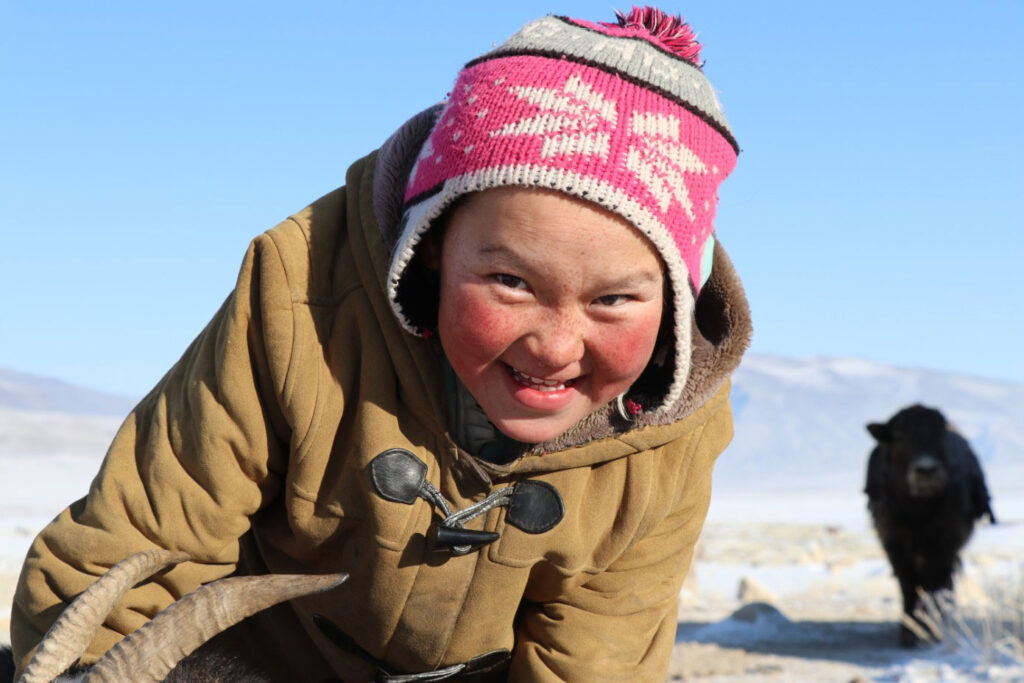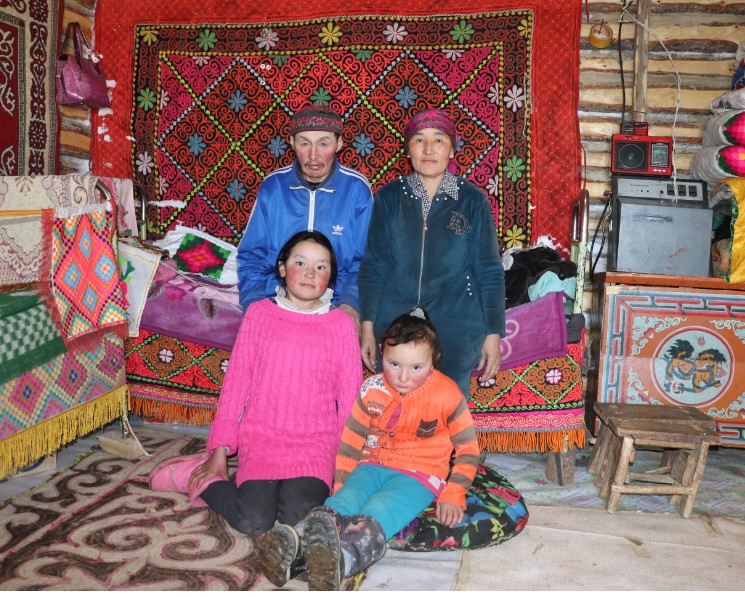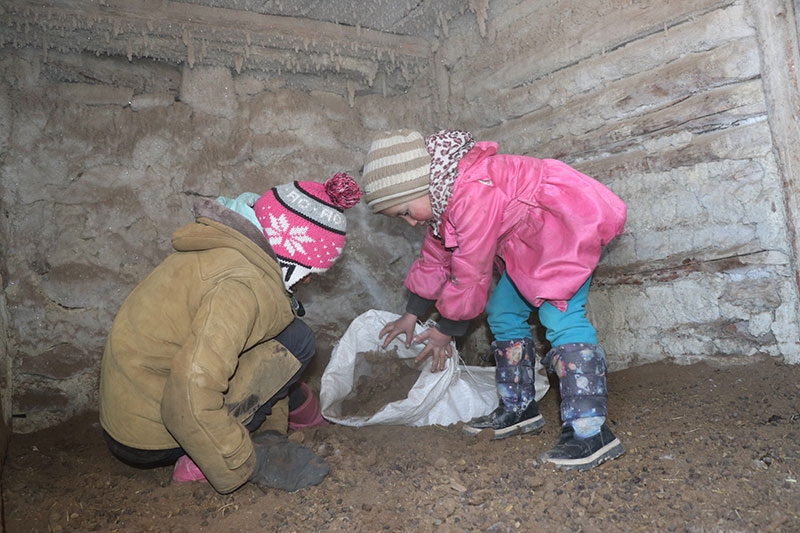Juldyz: I am a brave girl who do not afraid of spiders

Juldyz* is a 13-year old Kazakh herder girl from Tsengel soum, far western village of Mongolia. She lives with her parents and a younger sister while her another two sisters stay in their relatives’ home during school session as they cannot commute to school from their home due to the long distance and bad road. Juldyz is dropped out of school at the age of 7. Family’s only constant income comes from the government as MNT 20.000 monthly (equivalent of USD 8) for three children. Her family relies solely on their animals.
Juldyz’s family owns only 55 animals including a horse, 20 sheep and 30 goats which is considered extremely vulnerable when the weather becomes bad. Surrounded by snow-capped mountains, the winter is long and extremely cold as temperatures drops to -40 degree Celsius in Tsengel. Because of harsh weather conditions, none of their baby animals survived in the previous two years. Seeing no yield from their livestock and father’s health has been deteriorating recent months, Juldyz and other family members are in a deep concern.
Things got worse after few consecutive days snow storms in December, 2018. They could not herd their animals to the grazing land as the snowfalls are 10 cm deep at some lands and animals are too weak to walk through. And fodders and grass prepared in an autumn has almost finished by January, 2019. This is the time Save the Children together with Start Fund reached out this family.

Juldyz sitting in her mountain home with her family members © Delgermaa Altangerel/ Save the Children 2019
How Save the Children helped Juldyz and her family:
Juldyz’s family is one of 839 herder households who received humanitarian aid from Save the Children. Each household has received 8 packs of animal fodder, 25 kg each and multi-purpose cash equivalent of 60 USD. For a family like this with as few as 50 heads of livestock, such livelihood support is vital and would meet around almost two-month of animal fodder needs.
Juldyz’s story in her own words:

“I am herding my livestock alongside my father. I know lot of things about how to take care of our animals properly. I have two black goats and both of them have white spots on their faces. I looked after them since I was young, so I exactly know what they want or do not want. Beside feeding my animals, I clean animal dungs, bring drinking water at home, prepare firewood and other things. Kazakh girls are good at sewing, but not me. I went to school for only few days, and came back home to help my family. I really want to know how to write and read.
I am a brave girl. I do not afraid of darkness, spiders and snakes. But I am afraid if my father gets sick. Last December, there was snowstorms. My dad went to herding and he did not come back until next afternoon. I was really terrified if something bad happened to him and also our livestock. When he came back, I saw his toes were frozen. We called emergency from the village center. Now he can walk. When I grow up, I want to be a stronger woman who can support my family.”
Father Aybek*’s story in his own words:
“My biggest wish is to raise our livestock and live abundant with my family. But I feel so terrible and insecure that I could not raise the number of animals last two years. We tried our best to take care of baby animals, but they were so weak to survive the coldness. Animal feed and fodders are so important at this time, because summer starts late in June. Since we have two months of fodder provided by Save the Children, I hope that we would have less miscarriages and strong new-borns this year. With the cash provided, I will buy more fodder and feeds for livestock. ”If there is no help from Save the Children, I would turn to moneylenders. I know they are exploiting me, but there is no way out. Now, I really feel hopeful that our livestock would increase this year and our livelihood are more secured.”

© Delgermaa Altangerel/ Save the Children 2019
Background / Project information
One of the major consecutive disasters that occur in Mongolia is the Dzud – a harsh, extended summer drought that is then met with harsh winter weather resulting in severe consequences, particularly for livestock. The Dzud risk map for 2019, revealed that over 20 percent of the total area of the country is projected to have severe winter and difficult spring conditions. Based on the Dzud risk map and comparative analysis, Save the Children implemented the “Dzud anticipation” project, funded by the Start Fund during December 2018-February 2019, in seven soums of the Western two provinces. These soums are the most likely to be impacted in 2019 winter as well as that had historically the hardest hit and the highest rate of animal deaths during the 2016-2018 Dzuds, when snowfall covered up to 50 percent of the country. Save the Children believes that anticipation-based early actions can mitigate the risks and long-term impact of Dzud.
* Names of beneficiaries were changed due to Save the Children’s Child protection protocols
Story and photos developed by: Delgermaa Altangerel
Date of interview: 22 January 2019
Country/region of interview: Mongolia, Bayan-Ulgii province

